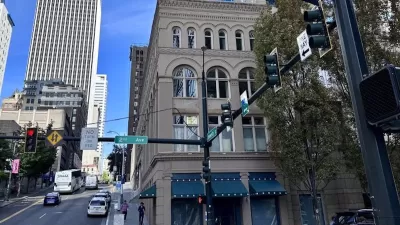Today's civic challenges are not unique in their need for balanced, accountable, and equitable solutions, requiring a combination of mindful reforms with sincere hope for more egalitarian prosperity.
In last Autumn’s edition of City Journal, Harvard economist Edward Glaeser set forth a conservative agenda for urban progress, which bemoaned a perceived resurgence of interest in redistribution and regulation across America’s urban centers. Today’s civic challenges are not unique in their need for balanced, accountable, and equitable solutions; requiring a combination of mindful reforms with sincere hope for more egalitarian prosperity. Glaeser’s unabashed partiality makes it difficult to accept his proposals without a degree of skepticism. Although littered with parochial right-wing barbs and talking points his plan does embrace some innovative solutions that can responsibly achieve civic progress. We are left to separate the efficacious wheat from the ideological chaff.
The first prong of Glaeser’s agenda calls for policies that will promote and support entrepreneurship, which includes evaluating public loan programs and lifting burdensome new business regulations. His call for evaluation, though well-intentioned, seems somewhat biased toward failure, as he cites his own statistically insignificant studies that nevertheless suggest loan ineffectiveness. Glaeser further suggests pooling several loan programs together, accepting applications from a large sample size of qualifying businesses but only providing loans to a select group in order to compare those that received public financing to those that did not. Despite difficulties for controlling the differences in competition and markets across cities, using a randomized approach could help make the case for public loans.
FULL STORY: Thriving from the Center: Freeing Urban Innovation from Ideology

Alabama: Trump Terminates Settlements for Black Communities Harmed By Raw Sewage
Trump deemed the landmark civil rights agreement “illegal DEI and environmental justice policy.”

Planetizen Federal Action Tracker
A weekly monitor of how Trump’s orders and actions are impacting planners and planning in America.

The 120 Year Old Tiny Home Villages That Sheltered San Francisco’s Earthquake Refugees
More than a century ago, San Francisco mobilized to house thousands of residents displaced by the 1906 earthquake. Could their strategy offer a model for the present?

Ken Jennings Launches Transit Web Series
The Jeopardy champ wants you to ride public transit.

BLM To Rescind Public Lands Rule
The change will downgrade conservation, once again putting federal land at risk for mining and other extractive uses.

Indy Neighborhood Group Builds Temporary Multi-Use Path
Community members, aided in part by funding from the city, repurposed a vehicle lane to create a protected bike and pedestrian path for the summer season.
Urban Design for Planners 1: Software Tools
This six-course series explores essential urban design concepts using open source software and equips planners with the tools they need to participate fully in the urban design process.
Planning for Universal Design
Learn the tools for implementing Universal Design in planning regulations.
Clanton & Associates, Inc.
Jessamine County Fiscal Court
Institute for Housing and Urban Development Studies (IHS)
City of Grandview
Harvard GSD Executive Education
Toledo-Lucas County Plan Commissions
Salt Lake City
NYU Wagner Graduate School of Public Service





























